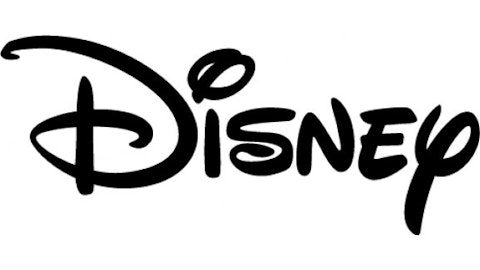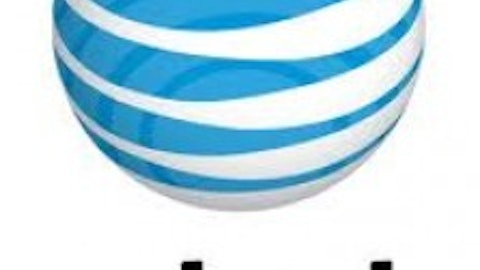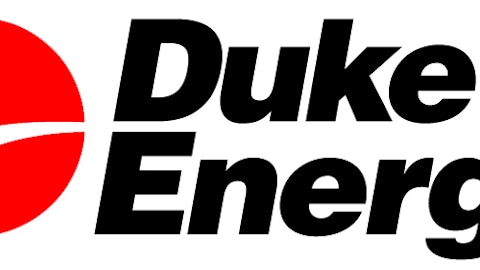
Therein lies the problem. Through a security filing from Vodafone Group Plc (ADR) (NASDAQ:VOD), which owns 45% of Verizon Communications Inc. (NYSE:VZ), it was revealed that Verizon Communications Inc. (NYSE:VZ) has $23.5 billion in purchase commitments with Apple Inc. (NASDAQ:AAPL) due later this year. A purchase commitment is a promise that a telecom company makes to a handset manufacturer for a guaranteed number of units sold over a given length of time. In this particular case, Verizon Communications Inc. (NYSE:VZ) promised to sell $23.5 billion in iPhones by the end of 2013, or be forced to pay the difference by purchasing the rest of the phones.
Biting off more than it can chew
However, Verizon Communications Inc. (NYSE:VZ) was unable to sell even half that amount in 2012, which indicates that the company stands no chance of hitting that lofty sales target this year. To date, Apple Inc. (NASDAQ:AAPL) has sold over 500 million devices, with 40% of those sales occurring in 2012. It appears that Verizon severely overestimated the growth potential of the iPhone in 2013, and believed that it could actually double its 2012 sales figures this year.
Unfortunately, recent data from IDC reveals that Google Inc (NASDAQ:GOOG)‘s Android first quarter global market share rose year-on-year from 59.1% to 75.0%, whereas Apple Inc. (NASDAQ:AAPL) iOS’ share dropped from 23% to 17.3%. This means that Verizon could soon be left holding the bag when its purchase commitments come due – by $12 billion to $14 billion, according to analysts at Moffett Research. A payment that massive could reduce Verizon’s annual earnings by $4 to $5 per share, and force the company to consider backing Android handset manufacturers, like Samsung, instead.
The billion dollar question
That leads us to the billion dollar question on Verizon shareholders’ minds: will Apple Inc. (NASDAQ:AAPL) actually force Verizon to buy up that many iPhones if it fails to meet its agreed sales targets? Or will Apple renegotiate the terms with Verizon later this year, as to not alienate an important ally in the United States?
However, I believe that Apple will likely force Verizon to pay at least most of the purchase commitment, to show its other telecom partners, such as Leap Wireless International, Inc. (NASDAQ:LEAP) (recently acquired by AT&T Inc. (NYSE:T)) and Sprint Nextel Corporation (NYSE:S) that it intends to enforce sales shortfalls. Leap Wireless International, Inc. (NASDAQ:LEAP) also signed a three-year purchase commitment with Apple that it could also fall short off. Leap estimates that the shortfall could cost the company $100 million if Apple demanded a payment for the entire year’s iPhone orders. However, Sprint Nextel Corporation (NYSE:S) made a much more conservative deal with Apple, promising to sell at least $15.5 billion of iPhones between 2011 and 2015, a much more conservative target that the company expects to meet.
Foreign companies smartly refuse to deal with Apple
These terms are incredibly tilted in Apple’s favor. Critics claim that these deals are made at no risk to Apple, with telecom companies shouldering all the risk and forced to pay dearly if Apple’s products wane in popularity.
Therefore, Asian telecom companies such as Japan’s NTT Docomo Inc (ADR) (NYSE:DCM) and China Mobile Ltd. (ADR) (NYSE:CHL) have flatly refused to agree to sign any purchase commitments with Apple. Asian manufacturers clearly understand that Apple needs them more than they need Apple, since handsets from Samsung, Sony Corporation (ADR) (NYSE:SNE) and other Android manufacturers have been enough to carry their top and bottom line growth over the past few years.
NTT Docomo Inc (ADR) (NYSE:DCM) is Japan’s largest telecom company, but it has notably avoided carrying the iPhone for that reason. Apple also refused to allow NTT Docomo to pre-install its own apps, which competing Android manufacturers have allowed the company to do. Despite losing some customers to iPhone-carrying competitors KDDI and Softbank due to the lack of the iPhone, NTT Docomo’s top and bottom line growth haven’t suffered terribly. Last quarter, NTT Docomo’s earnings rose 14.2% as its revenue climbed 3.1%. By comparison, Verizon’s earnings and revenue climbed 15.8% and 4.2%, respectively.





